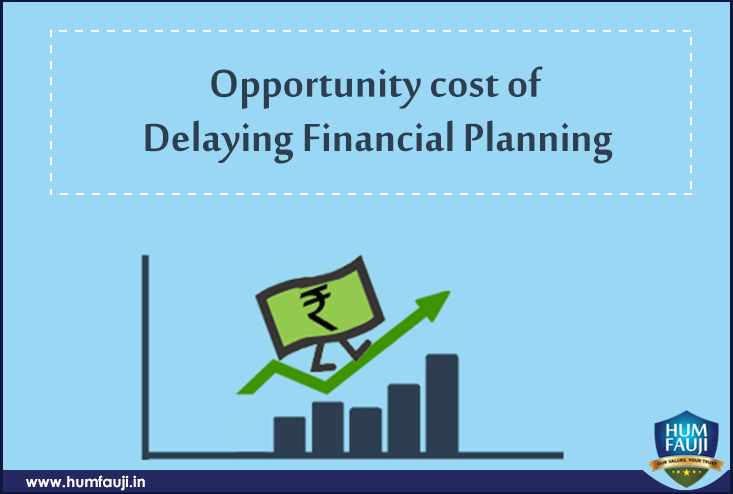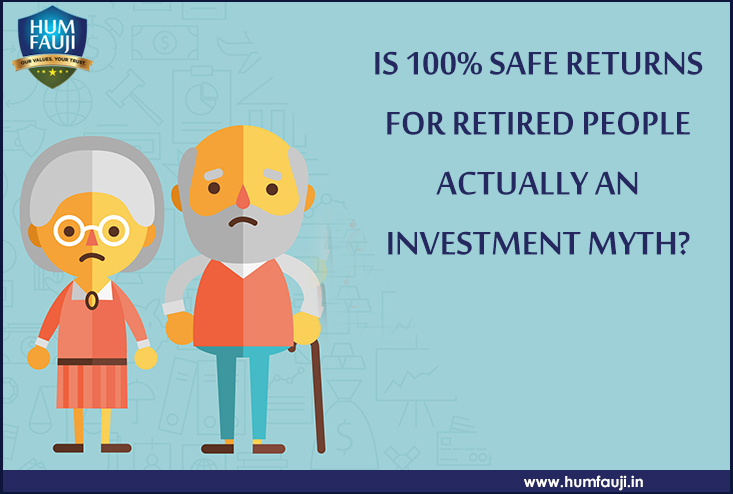Dear Friends,
While 2011 dissolves into brand-new 2012 and you look forward to the New Year with renewed optimism, we would request you to go through two articles which we have culled out for you from our archives. They present before you a fresh perspective of looking at matters financial – we’re sure they will be a useful reading for you.
We would also like to inform you that, in line with our increased costs on all fronts, we are increasing our Professional Charges for preparation of customised Personal Financial Strategy to Rs 6000/- from 16 Jan 2012 onwards. All those who wish to get this life-time roadmap for financial salvation at current charges, will have to act fast.
——————————————————————————————————————–
Economic Times [Arunagiri N, 29 December 2011]
The most intriguing behaviour that still eludes behavioural finance experts is the one that comes in plenty at times of market tops and bottoms. In big bull markets (when stock markets are moving up), investors remain blind to risks, while they remain doubly-blind to opportunities in big market declines (when markets are moving down). It is fascinating to observe that investors who were willing to bid any price at peaks for certain stocks are now unwilling to even give a second glance to them at prices that are one-fourth of their peaks.
What explains this rather irrational behaviour? It goes back to two basic human emotions – greed and fear. It is not so much about lack of awareness of either risk (in bull markets) or opportunities (in bear markets) that is driving this behaviour. It is rather our misguided confidence (coupled with greed and fear) that is behind this dynamics. We, humans, overestimate our ability to out-smart the crowd at exit and entry.
At the peak of a bull market, it manifests in the form of false confidence that when the music stops, you can not only stop dancing, but also can rush to the exit comfortably. But people miss the hangover and gate-crashing effect. Not to forget the stampede and the fatal consequences that follow. This is what happens when everyone in the crowd thinks that he/she can out-smart the other (bigger fool theory!). Preciously the same illusion blinds us, but in reverse, at the bottom of the market.
The problem gets further compounded because of the presence of false and misleading sharp corrections in bull markets and strong rallies in bear markets. Trying to time the market is the most common mistake and is also one of the most expensive, especially at market bottoms in terms of missed opportunities.
Business Standard [Sadique Neelgund, 6 February 2011]
‘Stop Procrastinating’ is the third most popular goal on a social networking site 43things, which compiles and tracks what people want to achieve in their life. We aspire to achieve difficult things and taming ‘procrastination’ is definitely one of these. For success with money and investments, time is the most critical factor, after proper asset allocation and right products.
Make a choice between “Do it yourself” or “Hire a professional” but not between “I will start now” and “I will start later”. Let me explain. Rajeev Kumar, 30, who decided to have a financial plan, is a typical investor. He gets a good salary, but doesn’t know how to channelise his money. Imagine if Rajeev had got down to getting his financial plan done ‘some day’ instead of ‘now’. Opportunities lost due to wrong financial decisions are called the ‘opportunity costs’.
DELAYING RETIREMENT PLANNING
Rajeev’s monthly expenses amount to Rs 30,000 and he needs to build a corpus of Rs 4.25 crore to meet his retirement expenses 20 years later. To build this corpus, he would have to invest only Rs 7,700 each month in equity-oriented investments over next 30 years. The power of compounding would ensure he achieves his requirement. But if he delays this action and starts after five years, he would have to shell out Rs 15,800 a month for 25 years. The additional outflow cost for delaying retirement planning by only five years is Rs 20 lakh.
WRONG ASSET CLASS
The simplest and most effective asset allocation strategy one can follow is ‘debt for short-term goals and equity for long-term goals’. But it can be the most difficult thing to do if you do not have a proper plan. Rajeev wants to accumulate Rs 20 lakhs in today’s value to fund his son’s education. This would be Rs 65 lakh by the time the child is 18. Rajeev would have to invest Rs 7,000 per month for the next 18 years in equity-oriented investments like mutual funds, bluechip stocks or exchange-traded funds, which are likely to give an annual compounded return of around 14 per cent. Like most of us, if Rajeev had invested in fixed deposits or traditional insurance products yielding around eight per cent yearly for this long term goal, he would have to invest Rs 14,000 a month. The additional outflows because of choosing a wrong asset class would be Rs 15 lakh.
KEEPING MONEY IDLE
Thanks to lethargic behaviour, hectic life and a lack of clarity on future goals, monthly savings get accumulated over time and stay safely in our savings accounts. One fine day, you wake up to realise there is too much money lying idle in account. Then, either you buy a car or a life-size LCD TV. Or, fall prey to touchy advertisements by financial institutions.
| OPPORTUNITY COST OF A 30-YEAR OLD DELAYING HIS FINANCIAL PLAN | |||
| Financial Goal | Without a Financial Plan | With a Financial Plan | Opportunity Cost |
| Retirement Fund = Rs 4.25 cr | SIP of Rs 15,800 (if after 5 years) | SIP of Rs 7,700 (if start now) | Extra outflows for delay = Rs 20 lakh |
| Child’s education = Rs 20 lakh (after 18 years) | SIP of Rs 14,000 (if in fixed deposits or Ulips) | SIP of Rs 7,000 (if in Equity MFs/ ETFs/ Bluechip Stocks) | Extra outflows due to choosing wrong asset class= Rs 15 lakh |
| Park Savings of Rs 4 lakh | Let it lie in savings bank account | Park in FD/CD earning 8% | Extra inflows for investing =Rs 1.2 lakh |
| Adequate life insurance | Buy 6 Ulips giving 8% (insurance cover = Rs 15 lakh) | Buy 1-2 term plans and invest the rest | Under insured in spite of high premium outgo = Rs 60 lakh |
| Foreign holiday (2) = Rs 3 lakh | EMI = Rs 10,700 (if going immediately) | Invest Rs 8,800 a month and go 3 years later | Extra outflows for instant gratification = Rs 70,000 |
Rajeev had been maintaining a balance of around Rs 3-5 lakh in his savings account yielding 3.5 per cent, which had accumulated over the past six years since he started earning. Now, a no-brainer: if he keeps aside Rs 1 lakh as emergency fund in a savings bank account and invests the remaining Rs 4 lakh in a fixed or corporate deposit scheme giving eight per cent, he can easily earn an additional Rs 1.2 lakh in 5 years. Why not hire a professional financial planner with this money?
WRONG INSURANCE PRODUCTS
Rajeev is happy that he has six insurance policies and he pays the premiums regularly, but the total cover is only Rs 15 lakh and premium outgo is Rs 75,000. Needless to say, all are traditional policies, with abysmal yields or unit-linked insurance plan (Ulips) with higher charges. And, on the other hand, his need-based insurance requirement was Rs 75 lakh. One will know the cost of being under-insured by Rs 60 lakh only when the ultimate uncertainty strikes and the family faces the heat.
GETTING INTO BAD DEBT OR LOANS
Borrowing is “spending an unearned income today”. Many debts can simply be avoided by delaying the buying decision. Say you want to go on a vacation to Europe which will cost Rs 3 lakh. If you can’t hold back your craving for instant gratification, you may end by opting for a three-year, equated monthly instalment (EMI) option of Rs 10,700 by the tour operator. It will eventually lead to a Rs 3.85 lakh outflow. Instead, if you delayed this trip by three years and invested Rs 8,800 each month at 10 per cent to build up a corpus, your net outflow would have been only Rs 3.15 lakh. Why not utilise the savings to fund domestic vacations for first two years?
A financial plan gives you a roadmap, which helps you take the right decisions and avoid expensive blunders. Act now and start working on your financial plan. There are many better things you can do with the extra money saved or earned. Start somewhere; you will find the next steps automatically. ‘Stop procrastinating’ and take the first steps.
Visit our Blog, https://humfauji.in/blog or facebook page http://www.facebook.com/HumFaujiInitiatives to get latest insight on matters financial
With regards,
Col (retd) Sanjeev Govila,
CEO, Hum Fauji Initiatives,
Your long-term partner for wealth creation
9999 022 033, 011 – 4054 5977 (Off), humfauji.in
Please do not print this email, unless it is absolutely necessary to do so. Let us all care for our environment in whatever ways we can.














Leave a Reply